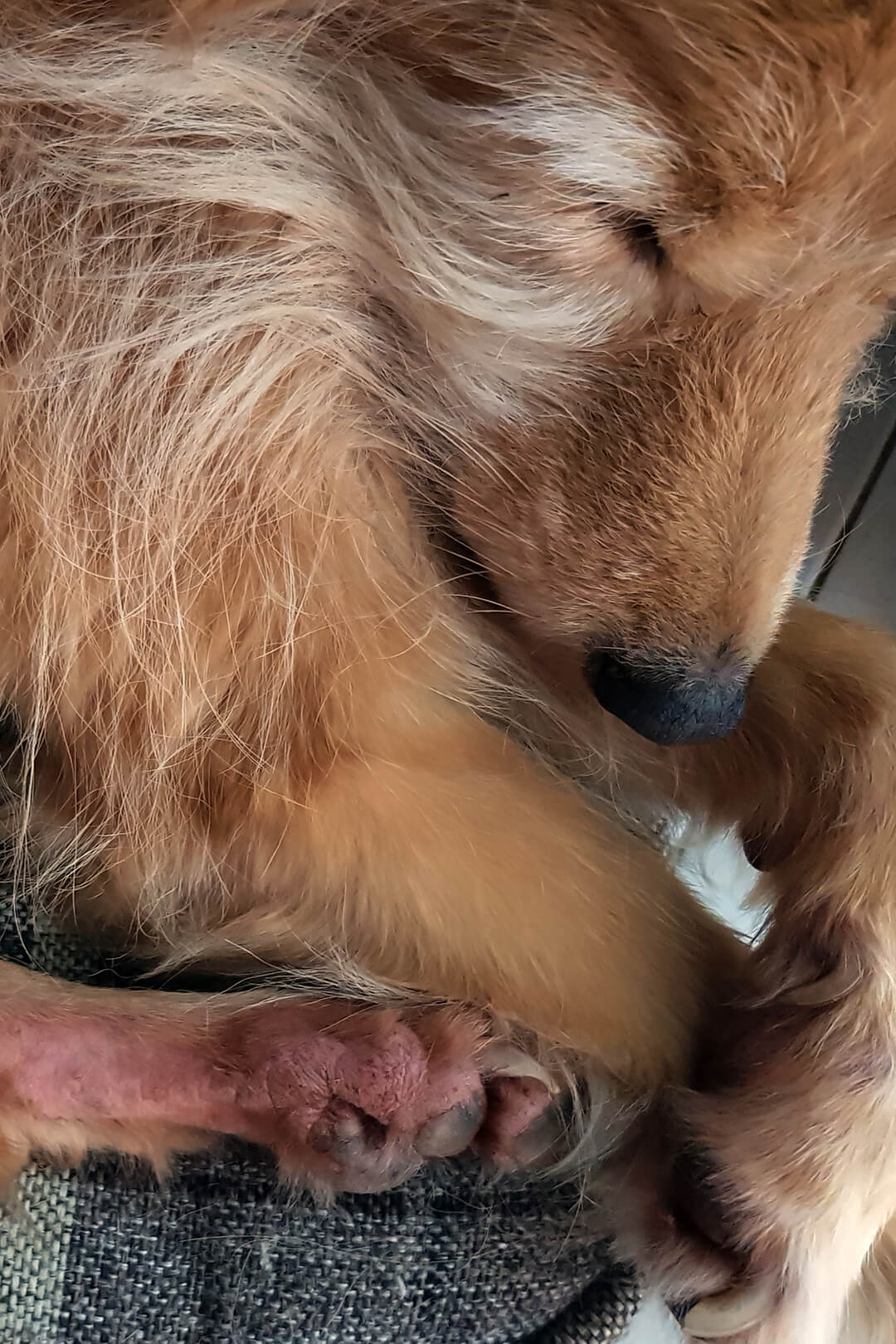Pet Parents, We've Got You Covered
Get answers to your pet health questions


Get answers to your pet health questions


Take a look at your dog’s feet — are they reddish and discolored? Do they constantly chew on them?
Your dog probably has hay fever.
Yes, dogs can get hay fever. But it’s not like how us humans get hay fever, even though the root cause (pollen) is the same. The medical name for hay fever is “atopy” - sometimes called atopic dermatitis.
For dogs, the most common atopy conditions are itchy, smelly ears. The smell is from the yeast that likes to live in the moist and inflamed ear canal and areas of severe inflammation and infection on their skin called “hot spots.”
Blood tests for inhaled allergens can be helpful in diagnosing the cause of your pet’s allergies. The list of potential bad guys goes on and on, including dust mites, ragweed pollen — even human skin! Yes, you read that right — your dog or cat can actually be allergic to you! Your veterinarian can help you with testing or may talk to you about visiting a veterinary dermatologist.
Managing atopy and decreasing the itch isn’t a simple process. In most cases, we can make pets more comfortable, but you can’t cure an allergy. Just as people with hay fever find relief with medications or allergy routines, we can use similar tools to help our pets suffering from allergies.
Here are a few tips to help your itchy pet:
How Fleas Fit In
Pets can have many allergies at the same time. It’s common for a pet with atopy to also be allergic to fleas. Since topical flea and tick products have made flea control safe and convenient, like PetArmor® Plus, it’s especially important to ensure fleas aren’t making your pet's itching problem worse. Great flea control is really important for any itchy pet — regardless of the cause.
Allergies aren’t easy to manage and can’t be cured. But with a little patience and understanding, you can help make your pet more comfortable.